10th January, 2025
Sponsored by ICSSR and Organized by FLAME University
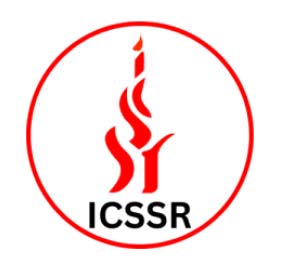
About the Seminar
In today’s globalized world, with the increasing effects of climate change, changing political structures and advances in technology, pertinent questions emerge about the future of Indian biodiversity conservation and its interaction with human dimensions in both urban and rural contexts. These interactions often result in issues including (but not limited to) natural resource management, human-wildlife conflicts, land grabbing, indigenous property rights, food insecurity, and inadequate implementation of development infrastructure and schemes. Biodiversity conservation, community development and Sustainable Development Goals are all concurrent themes, with their strong focus on improving the well-being of humans, ending poverty and protecting the planet. Despite significant research and advancement over the previous years, there remains a pressing need to advance the state of knowledge of man- nature dynamics within this context. The disciplinary, interdisciplinary, and multidisciplinary conversations within social sciences can contribute significantly through raising and answering critical questions and making space for lasting solutions and policy recommendations, thus ensuring a sustainable future for all.
The national seminar on Biodiversity Conservation and Sustainable Development will provide a shared platform to scholars, practitioners, and experts in India to exchange knowledge, interact with peers, critically reflect and collaborate. Additionally, it will help promote awareness of recent approaches and developments, cutting edge research and learning of best ground practices and professional networking.
Themes for Panel Discussion
Forests are integral to achieving the Sustainable Development Goals (including No Poverty, Life on Land, Zero Hunger, Clean Water, and Climate Action). They provide ecological, economic, and social benefits that underpin global efforts toward sustainability. Effective forest governance-defined as the frameworks, policies, institutions, and processes that manage forests sustainably-is essential for achieving these interconnected goals. Several key challenges exist in forest governance and SDG implementation, including, but not limited to, deforestation and land degradation, weak enforcement mechanisms, limited recognition of indigenous rights, and fragmented policy approaches, thus hindering progress. It becomes urgent that we ask and understand, 'Where are we lacking, and how do we go forward?'
Enhancing forest governance can unlock forests' potential to achieve the SDGs through innovative financing mechanisms like REDD+ and Payments for Ecosystem Services. These mechanisms, along with community-based forest management, technology and data integration, and international cooperation, offer hope for a sustainable future for India.
This panel discussion aims to address the multifaceted relationship between forest governance mechanisms and the advancement of SDGs. By exploring these interconnected themes, we can better understand current challenges and pathways for creating sustainable, inclusive, and resilient forest management strategies in India.
Wildlife Conservation and ManagementIndia’s vast ecological wealth encompasses over 7% of the world's recorded species and diverse biomes ranging from the Himalayas to coastal mangroves. However, India’s fast-growing economy and massive pivot to resource- intensive manufacturing and supporting infrastructure are imposing tremendous habitat destruction, degradation, and fragmentation pressures on its forests and biodiversity. These pressures are further compounded by continued
attempts to expand input-intensive industrial agriculture and resource-extraction demands imposed by India’s rapid urbanisation and the resulting high-consumption lifestyles.
Meanwhile, broader threats to biodiversity and habitat include climate change impacts, habitat loss and fragmentation, biodiversity loss, spread of invasive species, and weak governance. At the same time, India’s success stories and best practices include expanding protected area networks, community-based conservation models, species recovery programs such as Project Tiger and Project Elephant, and innovative policy implementations (Wildlife Act 1972, Biodiversity Act 2002).
India also possesses a rich history of Indigenous knowledge systems and practices that could augment current conservation laws and constitute the core of a 21st-century Indian conservation approach. How India manages to reconcile developmental imperatives with the conservation of its rich wildlife while also combating climate change will hold policy and management lessons not just for successive generations of Indian policymakers but also for the South Asian region and the Global South countries.
This panel aims to discuss India’s conservation goals and challenges, considering political and development advances in the country while seeking to foster a dialogue on how integrating conservation science, policy, and traditional wisdom can affect global ecological conservation.
Indigenous Systems and PracticesDeveloped over centuries and passed down through generations, Indigenous knowledge systems and practices play an essential role in Indian conservation spaces. Rooted in a symbiotic relationship with land, water and forests, the indigenous approach to conservation has maintained ecological balance and resilience in local and often overlooked spaces. Traditional Ecological Knowledge (TEK) has supported biodiversity, soil health, water conservation, and sustainable resource management for generations. At the same time, the Forest Rights Act of 2006 stands as a transformative piece of legislation in India, empowering Indigenous and local communities by legally recognizing their historical rights to forest lands, resources, and governance-a vital step toward integrating traditional ecological knowledge into contemporary forest management and ensuring environmental justice.
However, Indigenous traditional knowledge systems are usually left out of the conversation when creating a conservation action plan/ policy. It is crucial to reflect on the importance of Indigenous intellectual property and safeguard such knowledge from being lost amidst big conservation goals, environmental legislation, and climate change pressures. As we confront global challenges like climate change, biodiversity loss, and social inequity, indigenous knowledge offers invaluable lessons for sustainable development and resilience.
This panel aims to spotlight the critical role of Indigenous Knowledge Systems in India and foster discussion on their historical, ecological, and socio-cultural significance in addressing current conservation challenges and goals amidst pressures of urbanisation, climate change, and other sociological nuances.
Program Schedule
| 09:15 - 09:30 | Inaugural session | Welcome address by Prof Dishan Kamdar VC, FLAME University |
| 09:30 - 10:30 | Keynote Speaker | Dr. Nitin Rai (Independent Researcher) |
| 10:30 - 10:45 | Refreshment Break | |
| 10:45 - 12:15 | Panel 1: FOREST GOVERNANCE AND SUSTAINABLE DEVELOPMENT GOALS |
Moderator: Dr. Asmita Kabra (Centre de Sciences Humaines) Panelists:
|
| 12:15 - 01:30 | Lunch | VKS Dining Hall |
| 01:30 - 03:00 | Panel 2: WILDLIFE CONSERVATION AND MANAGEMENT |
Moderator: Dr. Nitin Rai (Independent Researcher) Panelists:
|
| 03:00 - 03:15 | Refreshment Break | |
| 03:15 - 04:45 | Panel 3: INDIGENOUS SYSTEMS AND PRACTICES |
Moderator: Ms Meenal Tatpati (Lawyer, Researcher) Panelists:
|
| 04:45 - 05:00 | Closing remarks | Dr. Abhineety Goel (FLAME University) |
Keynote Speaker
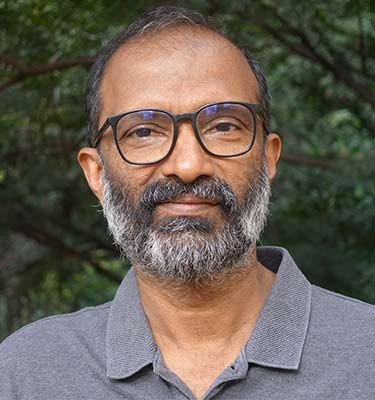
Dr. Nitin Rai
Independent Researcher
Nitin Rai is an independent scholar who studies the social and ecological impacts of tiger conservation practice in India. He has been conducting research in the Biligiri Rangaswamy Temple Tiger Reserve. He is interested in how conservation knowledge is produced and then deployed to dispossess local people. His work challenges current narratives that view nature as static and human presence in forests as being inimical to biodiversity. More recently he has been critically analysing conservationist’s efforts to economically value tiger reserves, estimate wildlife populations, and use technology for conservation surveillance and monitoring. Nitin combines political ecology research with advocacy to push for local governance of protected areas using the transformative potential of the Forest Rights Act.
Panelists

Dr. Ghazala Shahabuddin
Environmental Studies Department, Ashoka University, Sonepat; Visiting Fellow, National Centre for Biological Sciences, Bengaluru.
Ghazala's research interests lie at the cross-section of conservation science and policy. She has a PhD in Ecology and Conservation Biology from Duke University, USA (1998) for which she studied responses of butterflies to tropical forest fragmentation in Venezuela. Since then, her work has expanded to the policy arena including pioneering work on conservation-induced displacement, and community-based conservation in India . Her book Conservation at the Crossroads (Permanent Black, 2010), critically analyzes contemporary wildlife policy and implementation in India. She has also co-edited Nature in the New Economy ( Orient Blackswan, 2019) and Making Conservation Work (Permanent Black, 2007). Ghazala has been a Visiting Fellow with theNew India Foundation, University of Pennsylvania and National Centre for Biological Sciences for her work on conservation history of India. She worked as an Associate Professor at Dr. B.R. Ambedkar University in Delhi where she taught at the School of Human Ecology from 2009-2014. Since 2021, she has been a Visiting Professor to Ashoka University. Her current research is on long-term ecological change in Himalayan oak forests of Uttarakhand, and its implications for avifauna and forest regeneration.
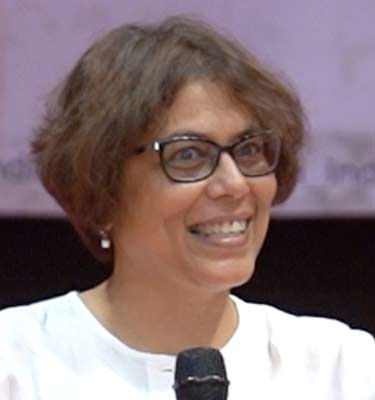
Dr. Asmita Kabra
Associate Researcher, Centre de Sciences Humaines (CSH), Delhi.
Ms. Asmita Kabra is an independent researcher with three decades of teaching experience in India’s public university system. Currently Associate Researcher at Centre de Sciences Humaines (CSH), Delhi, she served as a Professor at the School of Human Ecology at Ambedkar University Delhi from 2010 to 2024. Before that role, she taught for fifteen years in the undergraduate Department of Economics at Ramjas College, part of the University of Delhi, from 1995 to 2010.
Her research primarily focuses on the intersection of critical development studies and political ecology, exploring themes such as conservation and rural livelihoods, forced displacement, just transition, social impact assessment, agrarian change, and rural education.
Ms. Kabra is also a dedicated advocate for sustainable development. She is the founder and President of the NGO Adharshila and a founder trustee of the NGO Samrakshan Trust. Both organisations are committed to promoting sustainable and dignified livelihoods and education in the dryland forested areas of the Chambal region in Central India.In addition to her research and educational efforts, she served as the Managing Editor of the journal Ecology, Economy and Society-the INSEE Journal-from 2021 to 2023.
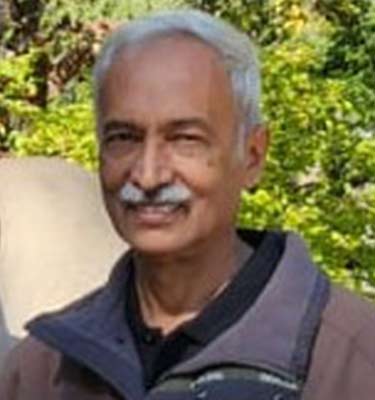
Mr. Jayant Kulkarni
Director, Wildlife Research and Conservation Society, Pune
Jayant Kulkarni is a dedicated conservationist and wildlife researcher with a robust educational background, holding a B.Tech and M.Tech in Chemical Engineering from the Indian Institute of Technology, Bombay, and an M.Sc. in Forestry from IGNFA. He has been actively involved in wildlife conservation efforts since 1987 when he joined the Indian Forest Service. Currently, Jayant is the Director of Conservation at the Wildlife Research and Conservation Society. His work focuses on the conservation of private forests in the Western Ghats and the establishment of wildlife corridors to facilitate ecological balance.
He is particularly interested in sustainable management practices that ensure the coexistence of wildlife and local communities. Jayant has led numerous projects, including a conservation initiative for private forests in the Koyna-Chandoli Wildlife Corridor and an occupancy survey of tigers in the Satpura-Melghat Tiger Corridor. He is also involved in ongoing projects addressing human-elephant conflict, which are critical for promoting harmony between wildlife and local populations.
Through his advocacy and research, Mr. Kulkarni aims to develop management plans that effectively address ecological challenges and promote sustainable utilisation of natural habitats. His commitment to community stewardship and collaborative conservation strategies positions him as a leading figure in India's wildlife conservation field.
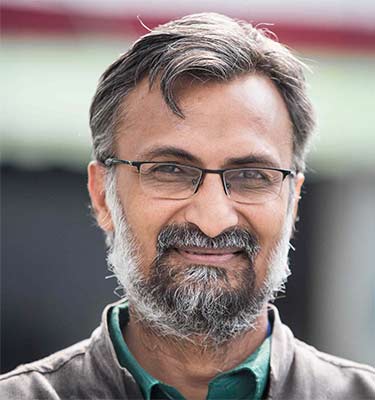
Dr. Pankaj Sekhsaria
Associate Professor, Centre for Technology Alternatives for Rural Areas (CTARA) & Associate Faculty, Centre for Policy Studies (CPS), IIT-Bombay. | Member, Kalpavriksh Environmental Action Group
Pankaj Sekhsaria is a long time member of the environmental group Kalpavriksh and is currently Associate Professor at the Centre for Technology Alternatives for Rural Areas (CTARA), IIT Bombay. His research interests lie at the intersection of science, environment, society and technology. He has written extensively on issues of the environment and wildlife with a special focus on the A&N Islands and protected areas in the country. His books on the islands include his debut novel 'The Last Wave', Islands in Flux – the Andaman and Nicobar Story (Harper Collins 2024), which is a collection of 25 years of his journalism about the islands, Waiting for Turtles (Kardi Tales 2021) – an illustrated story book and his first for children on turtle nesting in the Andamans and most recently The Great Nicobar Betrayal (Frontline 2024).
His recent works in the broad field of Sociology of Technology include Instrumental Lives - an intimate biography of an Indian laboratory, Nanoscale - Society's deep impact on science, technology and innovation in India and First Steps - Citizen Science in Ecology in India.
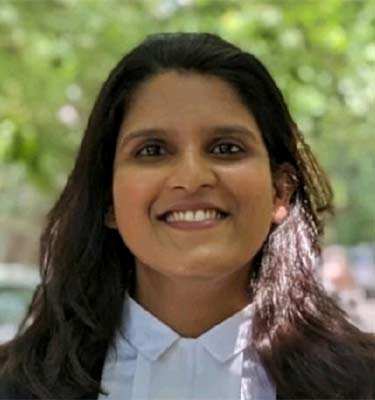
Ms. Meenal Tatpati
Women4Biodiversity | Kalpavriksh and ICCA Consortium | IUCN World Commission on Protected Areas | IUCN World Commission on Environmental Law
Meenal Tatpati is a lawyer-researcher with a keen interest in the jurisprudence and governance mechanisms of forests. Her earliest work has been with research and advocacy on the implementation of the Forests Rights Act and its interplay with other forest legislation, particularly its relevance in the governance and management of Protected Areas and during forest diversion. Some of the highlights of her work have been documenting the worldviews of the Dongria Kondh community in Odisha, India and the life stories of women of the Raika pastoralist community in Kumbhalgarh Wildlife Sanctuary. She has keenly been observing and writing on the development of legislation and schemes regarding carbon markets in India and their impact on local communities. She is a member of Kalpavriksh and is currently working as a research and policy associate with Women4Biodiversity where she is engaging with the Convention on Biological Diversity on gender considerations and the interlinkages between biodiversity and climate change policy. She is also a member of the IUCN World Commission on Protected Areas.
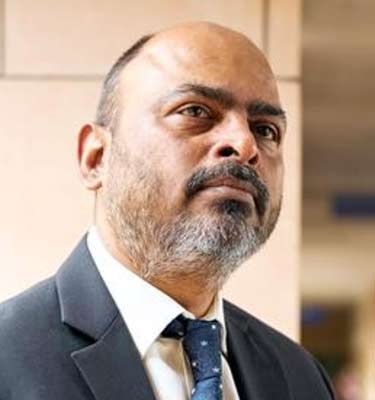
Dr. Ashwini Chhatre
Associate Professor, Economics & Public Policy and Executive Director, Bharti Institute of Public Policy, Indian School of Business
Ashwini Chhatre is an interdisciplinary scholar with research interests broadly centered on the dynamic cross-scale interactions between natural resource governance, economic development, and environmental conservation. He has published widely on institutional drivers of trade-offs and synergies between livelihoods, climate, and biodiversity in human-dominated landscapes, covering the entire spectrum from household-level to global analysis. Ashwini was the founding Editor-in-Chief of World Development Perspectives during 2016-19, and served as the Senior Editor of Conservation Letters during 2009-2014. He currently serves as the Executive Director of Bharti Institute of Public Policy at the Indian School of Business while serving on its faculty as an Associate Professor of Public Policy.
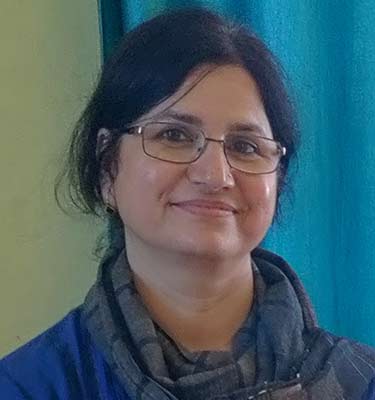
Ms. Neema Pathak Broome
Member, Kalpavriksh | Coordinator, Conservation and Livelihoods Programme | Regional Coordinator, ICCA Consortium (South Asia)
Neema Pathak Broome, is a member of Kalpavriksh ( www.kalpavriksh.org ) and coordinates the Conservation and Livelihoods programme( https://kalpavriksh.org/our-work/conservation-livelihoods/ ). Her work focuses on decolonised and alternative forms of conservation through advocacy and onground support to Indigenous Peoples and Local Communities’s own efforts at strengthening their ecological socio-cultural practices, self determination including governance and management, traditional knowledge systems and ownership, access and use rights. She coordinates the global movement on Areas and Territories Conserved by Indigenous Peoples and Local Communities ( https://www.iccaconsortium.org/) in South Asia and is part of networks exploring the alternatives to the current unsustainable forms of development including the Global Working Group on Beyond Development ( https://beyonddevelopment.net/about-the-global-working-group-beyond-development/ ).
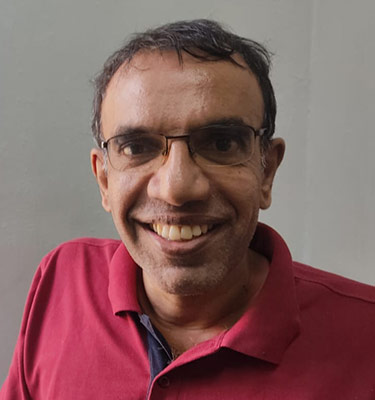
Prof. Ajit Menon
Professor, Madras Institute of Development Studies | Visiting Scholar, FLAME University
Ajit Menon is an academic and economics researcher specializing in rural development and natural resource governance. He earned his Ph.D. from the Madras Institute of Development Studies, where his dissertation focused on the political economy of decentralization in the Kolli Hills. With over two decades of experience, he has held prominent positions, including Professor at the Madras Institute of Development Studies and Fellow at various esteemed institutions like - Carson Fellowship at the Rachel Carson Center for Environment and Society in Munich, Germany, and the L.M. Singhvi Fellowship at the Centre for South Asian Studies, University of Cambridge. Menon is a noted author and editor, contributing to several influential publications, including "Environmental Politics at the Local: Natural Resource Governance in India" and "Democratizing Forest Governance in India." His research addresses critical issues such as poverty, environmental conservation, and social justice, particularly in South Asia.
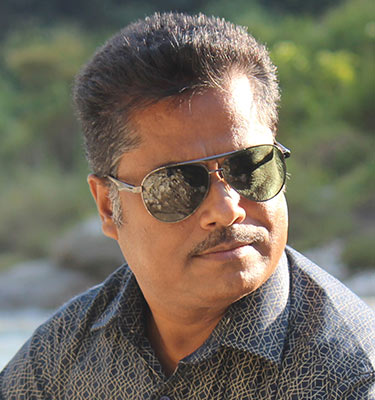
Mr. Arnab Bose
Independent Practitioner
Conservationist Arnab Bose works in the field of conservation since 1993. He worked for the conservation of several endemic and critically endangered species like Golden Langur, White-bellied Heron, White- backed Vulture, Pygmy Hog, Gharial etc, involving local communities in Assam. He has been working in and around the Kakoijana Reserved Forest since 1995 for the conservation of Golden Langur and its habitat, involving seven communities from 34 villages. Arnab also teaches others, rural villagers included, regarding community conservation. He also helps villagers and assists Government officials with GIS mapping and consultancy for FRA implementation in several Districts of Assam.
He had served as General Secretary, Nature’s Foster (A Conservation Society has been working in Assam since 1991), for more than ten years voluntarily. Professionally managing a GIS Firm and presently pursuing conservation activity independently through community participation in 22 CCA’s among 34 villages around Kakoijana Reserved Forest, Bongaigaon, Assam.

Mr. Viswadev V S
Program Director | BAIF Development Research Foundation
Mr. Viswadev V S is a Senior Project Officer at BAIF Development Research Foundation, holding a Master’s degree in Development Policy Planning and Practice from Tata Institute of Social Sciences and a bachelor's degree in Geology. He is currently serving as the Project Coordinator of BAIF for the CGIAR research Initiative- Nature Positive Solutions for Shifting Agrifood Systems to More Resilient and Sustainable Pathways, India. For the past two years, he has been coordinating multiple research initiatives in collaboration with national research partners to develop nature-positive models. As a project coordinator he has been leading the integration BAIF’sexpertise in areas like agrobiodiversity conservation, natural resource management, Land Degradation Neutrality, agri horti forestry (wadi), Climate-Smart Agriculture and renewable energy into the Nature positive solution project interventions.
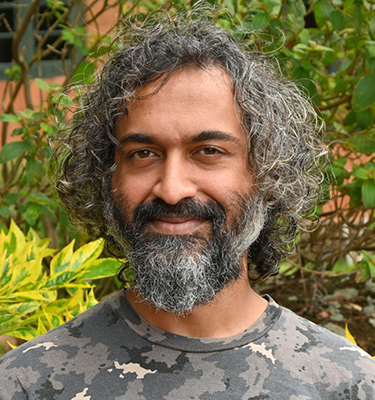
Mr. Faisal Rehman
Researcher and Program Coordinator | People & Nature Collectives | Keystone Foundation
Faisal Rehman is a researcher and Programme Coordinator at Keystone Foundation, working with the People and Nature Collectives at Kotagiri, Nilgiris; with interests in public history, community representation, and the politics of knowledge flows & ownership. His work is based on collaborative revitalisation of Indigenous Knowledge Systems, the cultural rights of small local communities, and archiving. Faisal supports Indigenous Community-led foundations/organisations, coordinates projects building community archives, provides technical support to local and indigenous researchers, creates archiving tools and facilitates community media platforms.
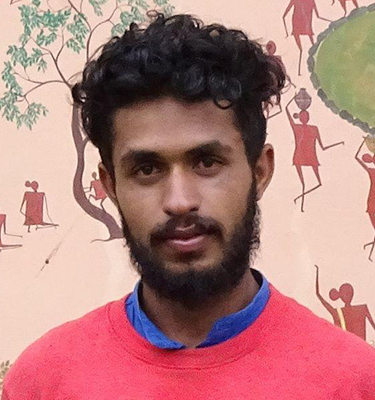
Mr. Mountheesh Kuttan
Mountheesh Kuttan is a Community-based Researcher and Mobiliser from the Toda community in the Nilgiris, Tamil Nadu. Over the last few years, he has been working towards setting up a Community-led Knowledge Resource platform, and monitoring the Toda communities' landscapes and wild- scapes. He is interested in Cultural Geographies, Sacred Ecologies, Botany and Mapping. Being well versed with the Traditional Cultural Expressions and Ecological Knowledge of the Todas, his work explores the intersections between science, technology, and representing traditional knowledge with the help of Digital Tools and other media. At present, Mounthees is working with Keystone Foundation.
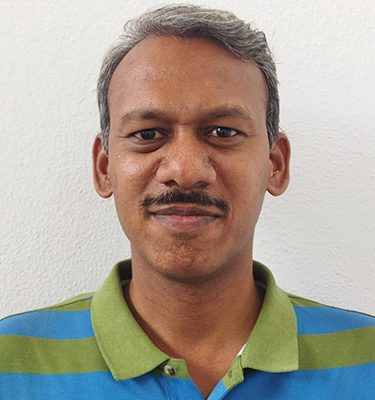
Dr. Venkat Ramanujam
R. Venkat Ramanujam is an Assistant Professor of Rural Management at Shiv Nadar University, Delhi-National Capital Region (NCR). His research interests lie in the rural transformation of indigenous/ Adivasi communities. Ramanujam has been engaged with the recent recognition of forest rights of Adivasi communities in central India. He completed a PhD in Sustainability Studies at the Ashoka Trust for Research in Ecology and the Environment (ATREE), Bengaluru, India. He has previously studied at the University of Delhi, the Tata Institute of Social Sciences (TISS), Mumbai, and the University of Cambridge.
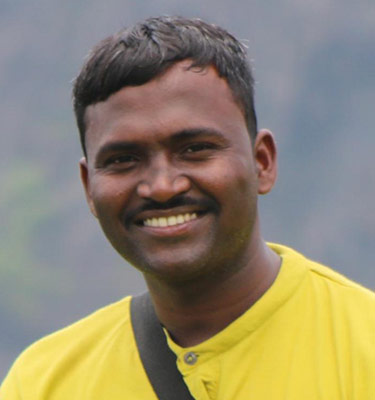
Mr. Subhash Dolas
Subhash Yaman Dolas is a dedicated environmentalist with a BA degree, actively working in the Bhimashankar Sanctuary for the past 11 years. He has been associated with Kalpavriksha Sanstha, focusing on environmental protection, forest conservation, and improving livelihoods in collaboration with local communities. Mr. Dolas has played a significant role in promoting eco-tourism development, engaging youth in various initiatives aimed at preserving the region's natural beauty while fostering sustainable economic growth. His commitment to the environment and local communities highlights his passion for creating a better future for both nature and the people who depend on it.
Organizing Committee
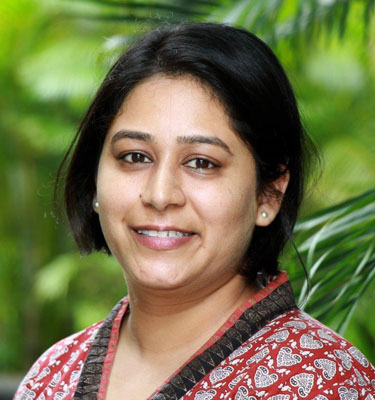
Dr. Abhineety Goel
Environmental Studies
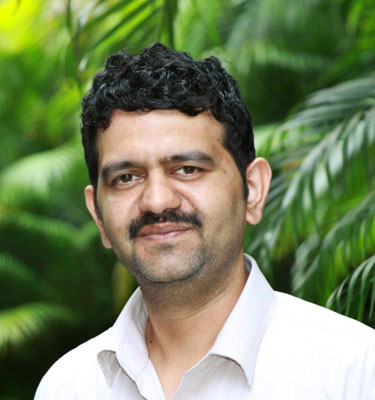
Dr. Chaitanya Ravi
Public Policy
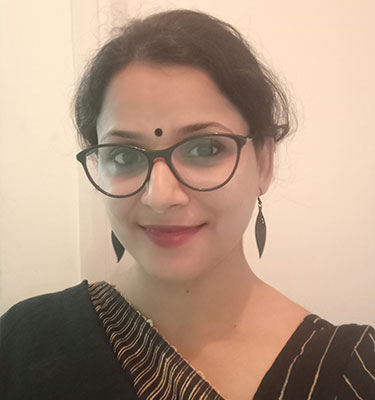
Dr Rajitha Venugopal
Literary and Cultural Studies

